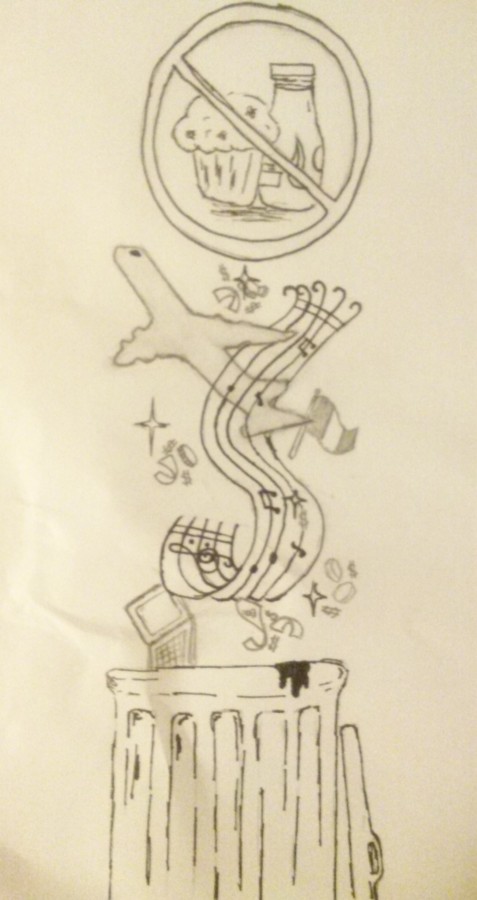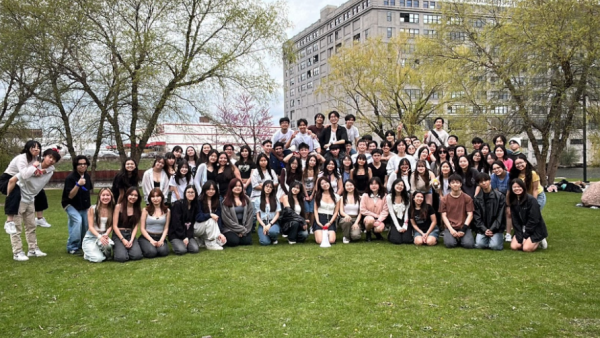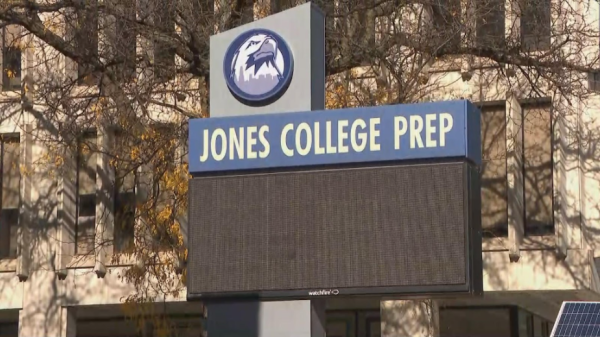Foods, Funds and Fundraising: The New CPS Food Policy
Gone are the vending machines, gone are the churro sales, gone are the candy boxes, and gone with the ways Jones has been earning money for years. Since the start of the school year, one of the changes that students and administration have had to face was a new CPS policy that prohibited the selling and vending of food during school hours at the expense of Jones celebrations, extracurriculars, and hungry stomachs.
The new policy, called CPS Healthy & Snack Beverage Policy, is aimed at creating a healthy school environment under the National School Lunch Program (NSLP), National School Breakfast Program (NSBP), Seamless Summer Option (SSO), and the Child and Adult Care and Food Program (CACFP). For the 2014-2015 school year, it was mandated that “competitive foods,” branded beverages and foods that compete with the school’s functioning such as Goldfish Crackers, Nutri-Grain Bars, or Doritos, are to be audited out in all CPS schools under the USDA. This audit got rid of almost all food options that are sold in fundraisers, vending machines, and even in the treats that teachers pass out; rather they and parents have been encouraged to hand out non-food treats like stickers and pencils. These rules do not apply to activities that begin 30 minutes after the end of the school day or non-school days like report-card pickup.
The negative impact of this policy is seen everywhere, especially in the music department. Band and orchestra students have been lugging candy boxes and selling consumable goods such as juices, drinks, and water bottles for years to fund for airplane and cruise ship traveling to locations such as Los Angeles and Cozumel, Mexico. This year they plan to travel to The Julliard School in New York, one of the most “famous” and “prestigious” music institutions in America says Director of Instrumental Music Frank Menzies. However, the audit has cut “70% of fundraising, as of result,” stunting trip funding. In previous years, the music department had also earned money through professional engagements like Homeland Security and their own performances like the annual Winter and Spring Concerts, but it only covered minimal funds, and at times students don’t participate due to outside responsibilities such as family and grades.
“Students are students first; we will not go against the academics,” said Menzies.
Groups like Jones’ Student Government Organization (SGA) have been taking advantage of unofficial school days like report-card pick up days and school events like Homecoming, where it sold around 1,000 tickets, to sell concessions and raise money for the classes. The Association of Latin and American Students (ALAS) took advantage of open-house, but only made 500 dollars compared to the 3,000 to 4,000 dollars they made last year through their churro sales, illuminating the issue of how few students are around during after-school hours and non-school days to fuel fundraising. All profit ALAS makes goes to their scholarship program that gives graduating members technology like tablets and laptops, which are “one of the many things Latino students need at the college level,” English teacher and ALAS sponsor Ernesto Saldivar said. But without additional funds, the policy has been jeopardizing the chance of the program continuing next year.
“Children are always hungry,” Menzies said, reflecting on how it impacts students. “They don’t always want what is available.” Specifically to sports teams, he also said the audit makes it difficult for them when they prefer food that can be “re-wrapped and stored” or “eaten in portions.”
“You got to understand how student organizations can sustain their own purpose, their own missions if federal policy goes against it,” Saldivar said. He also does not see the practicality of the policy in class: “Students have the right to bring food into the classroom, especially if they have some kind of medical problem.”
Despite all this, some haven’t had any problem with the new policy. The students participating in the 2015 trip to the Galapagos Islands have also taken advantage of open-house to sell popcorn, in which trip sponsor and science teacher Eve Reineke said, “was successful for those who participated.” Reineke didn’t have any plans for fundraising prior to the start of the school year, so “it didn’t affect our progress at all,” she says. The only food-like item they have sold was coffee, which they pre-ordered in various flavors and sold them in bags.
In the end, those who have traditionally used food to fundraise may have to go the hard way. Students participating in the 2015 French Exchange have to pay for their fee in full without any help. French teacher and trip sponsor Tory Waterman, who has been teaching at Jones and supervising the exchange since 1998, at first sold pizza during lunch periods in order to raise money. The process was deemed to be interfering with school function, and the French group stopped all fundraising efforts since 2008.
With all this in mind, the food audit is only for the 2014-2015 school year. Thus, all current food restrictions should be regarded as a makeshift, maybe even going back to old standards next year. Until then, students, sponsors, and supervisors will have to make do with what they have.
“We will comply and be in compliance with whatever the law requires,” Menzies said .







